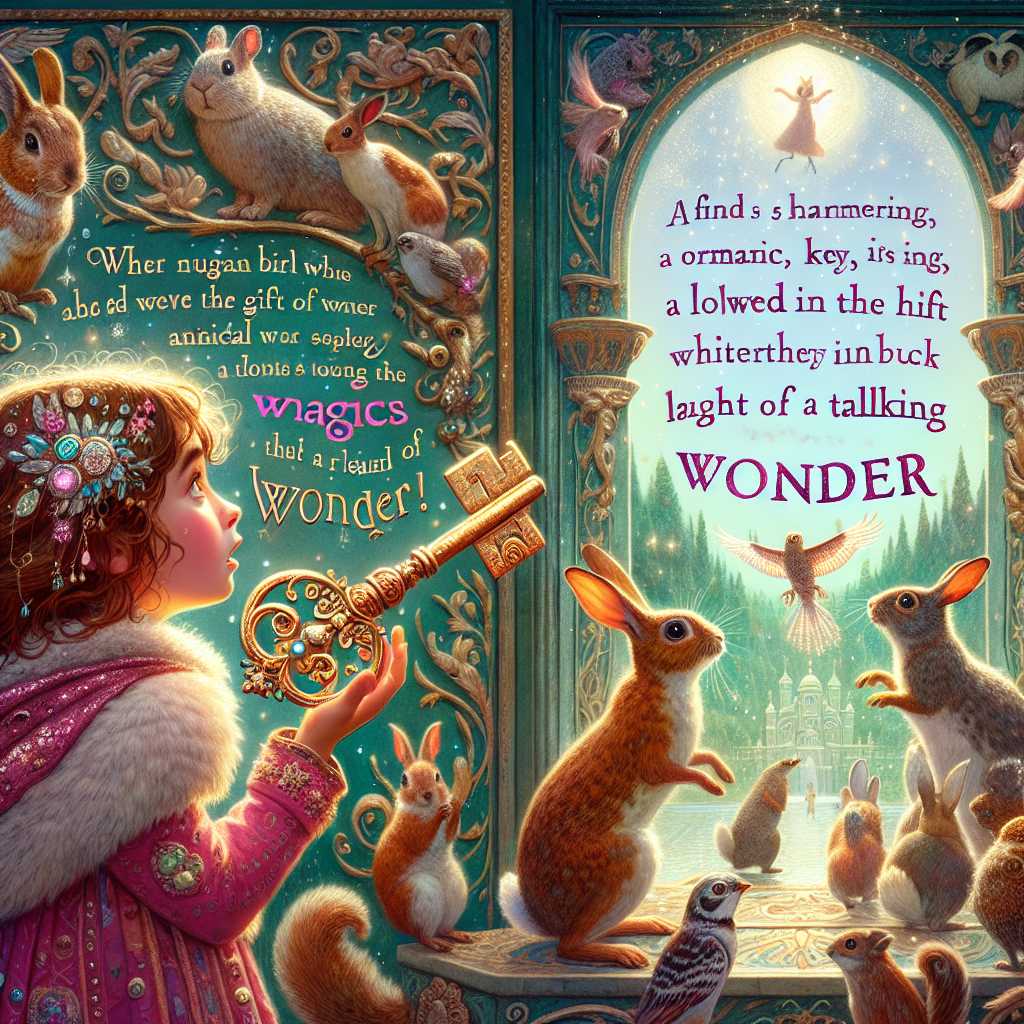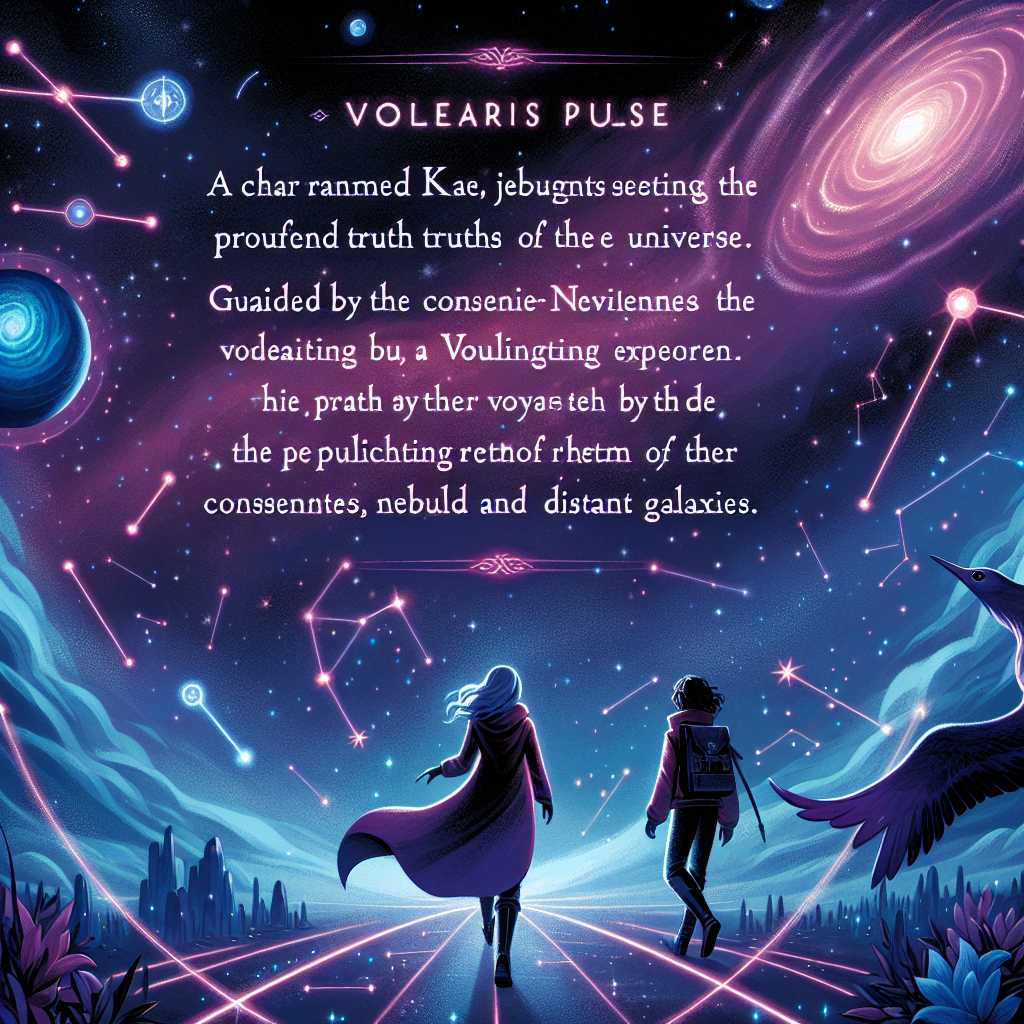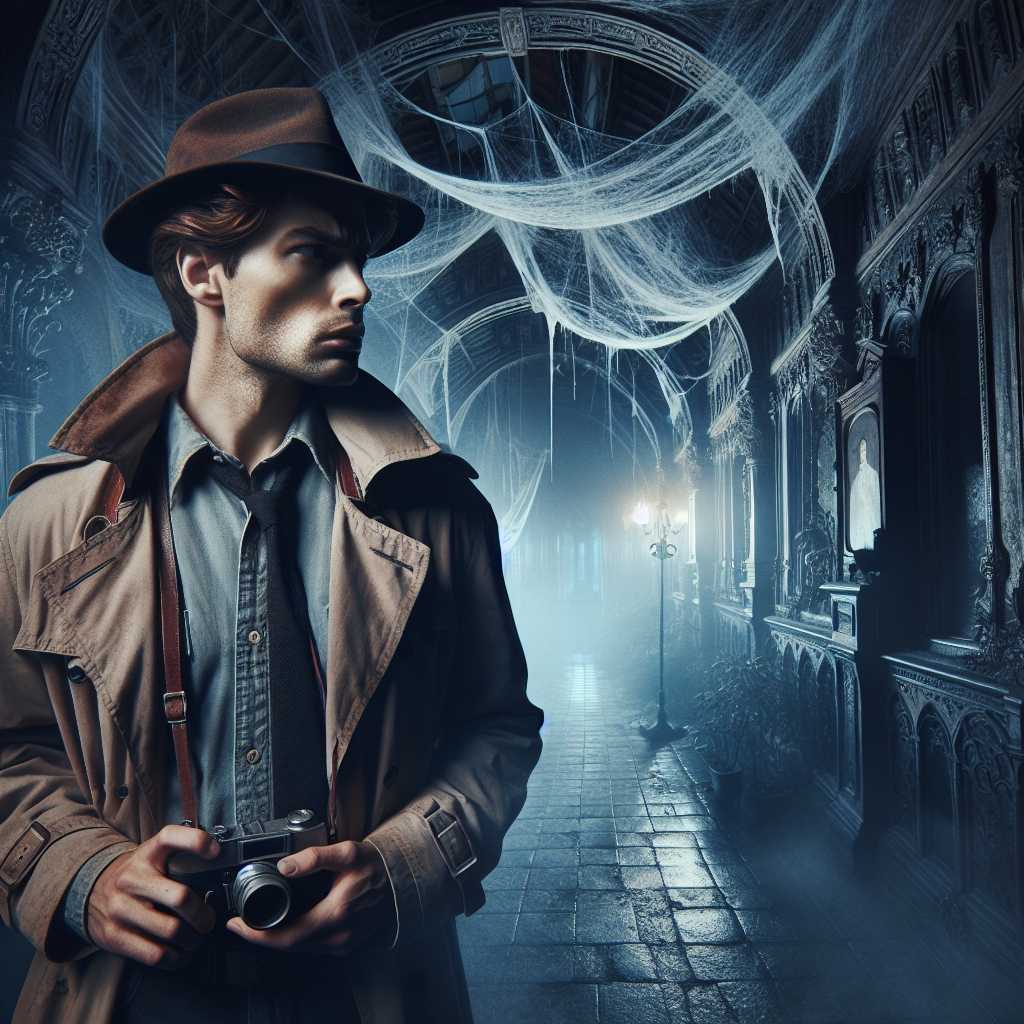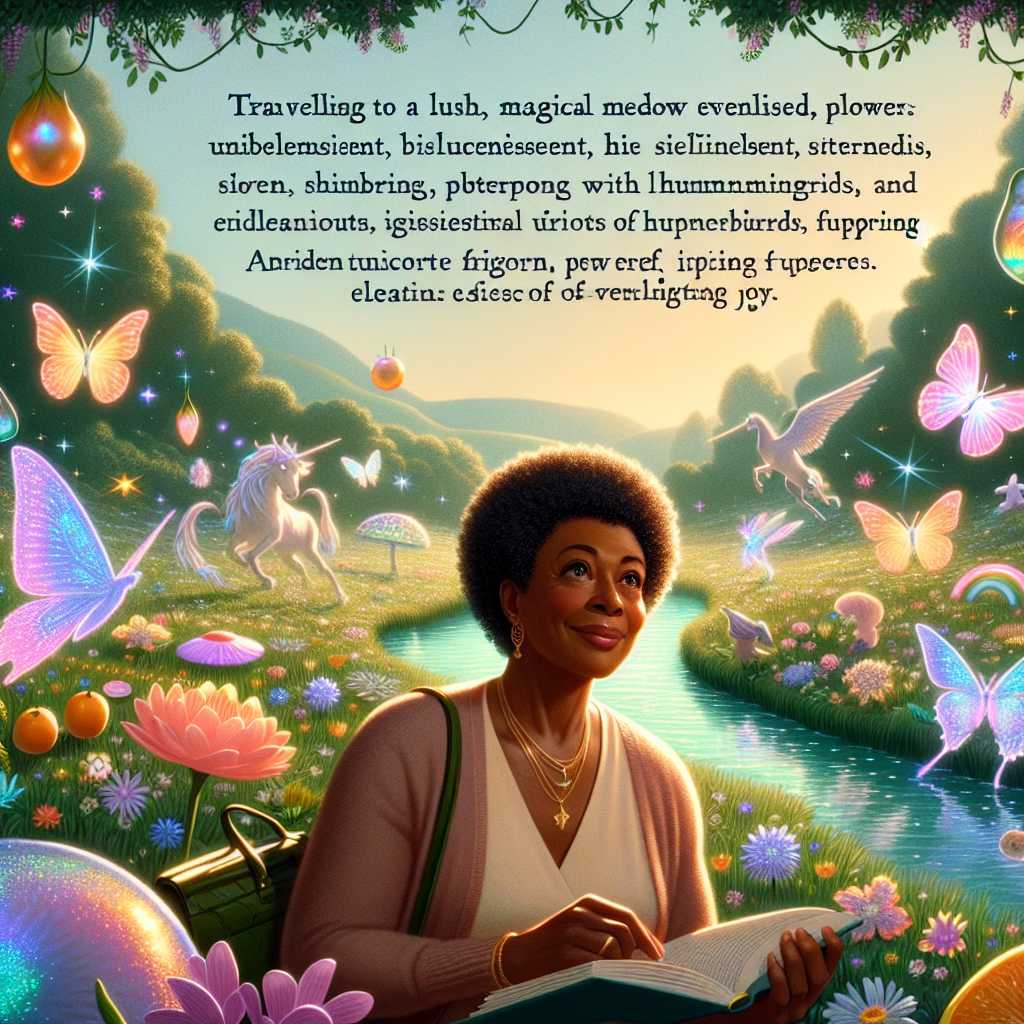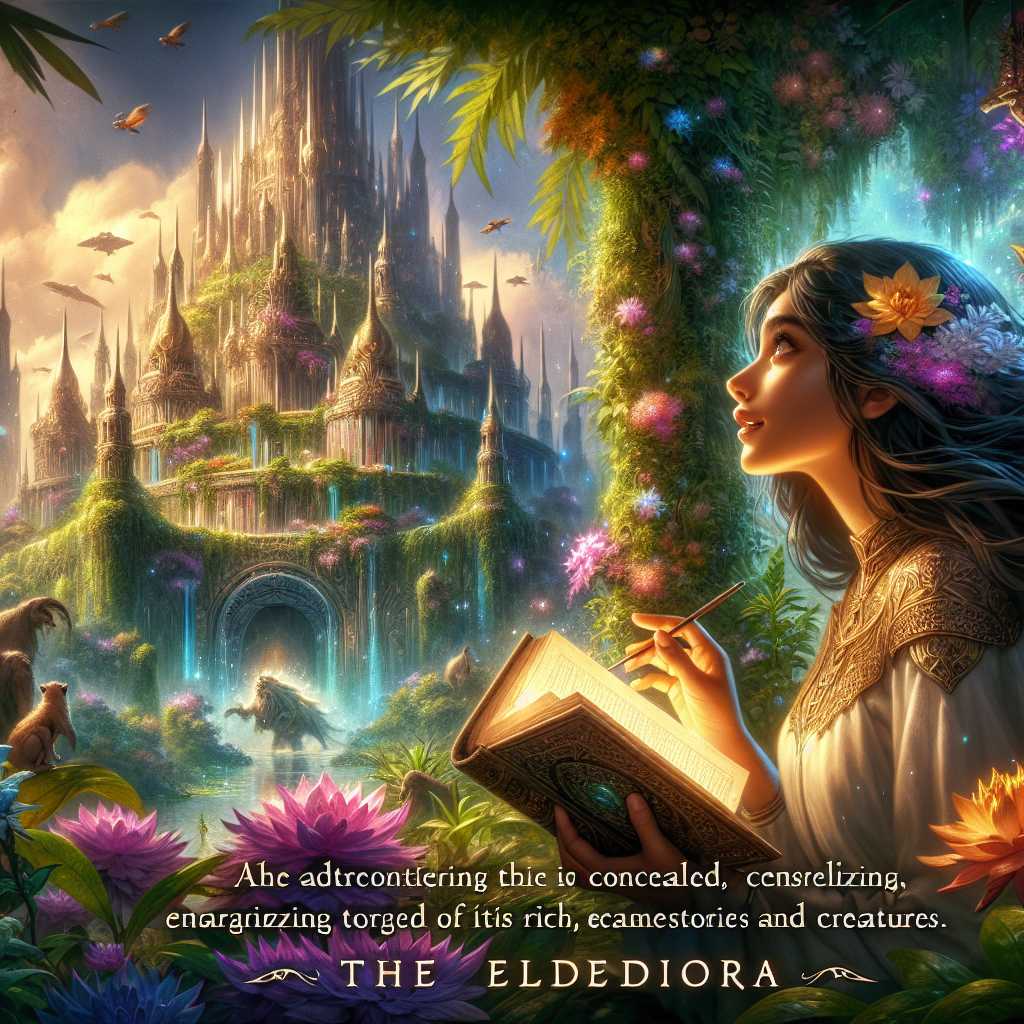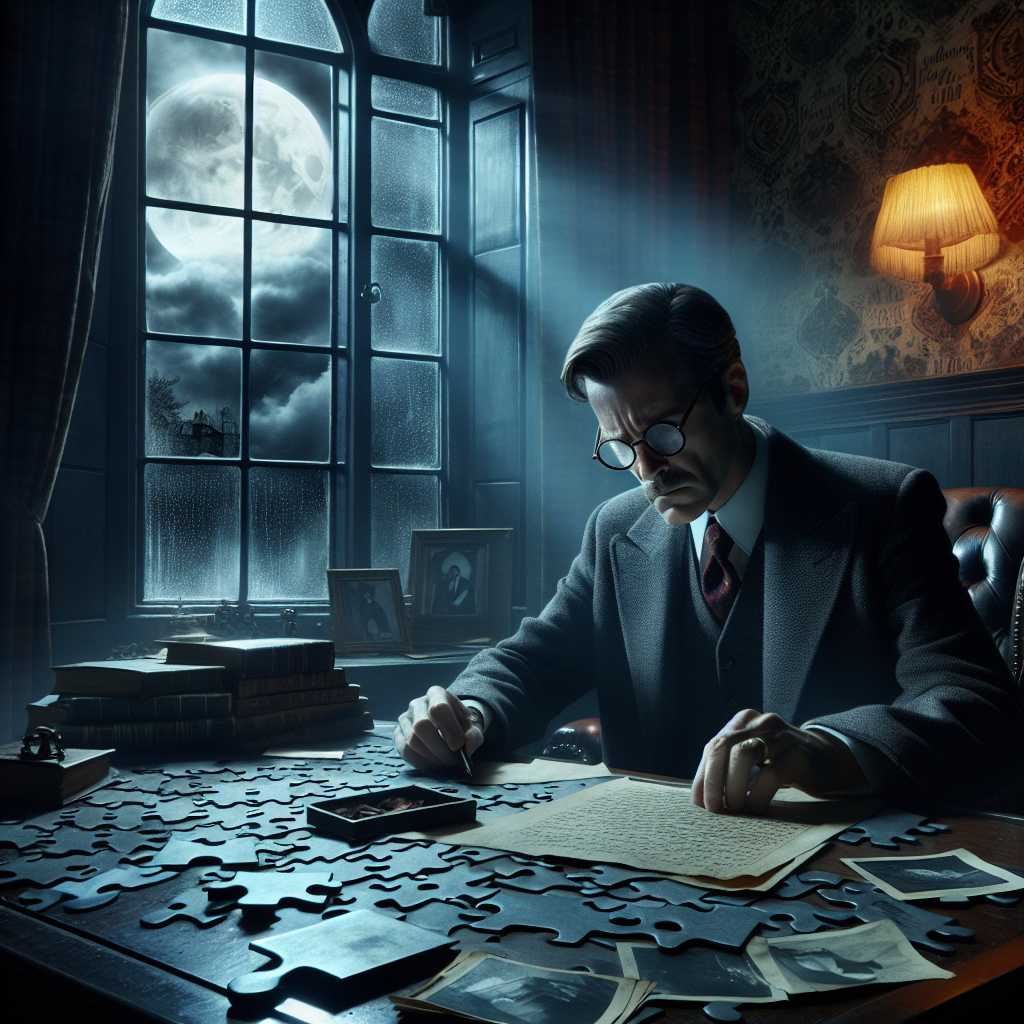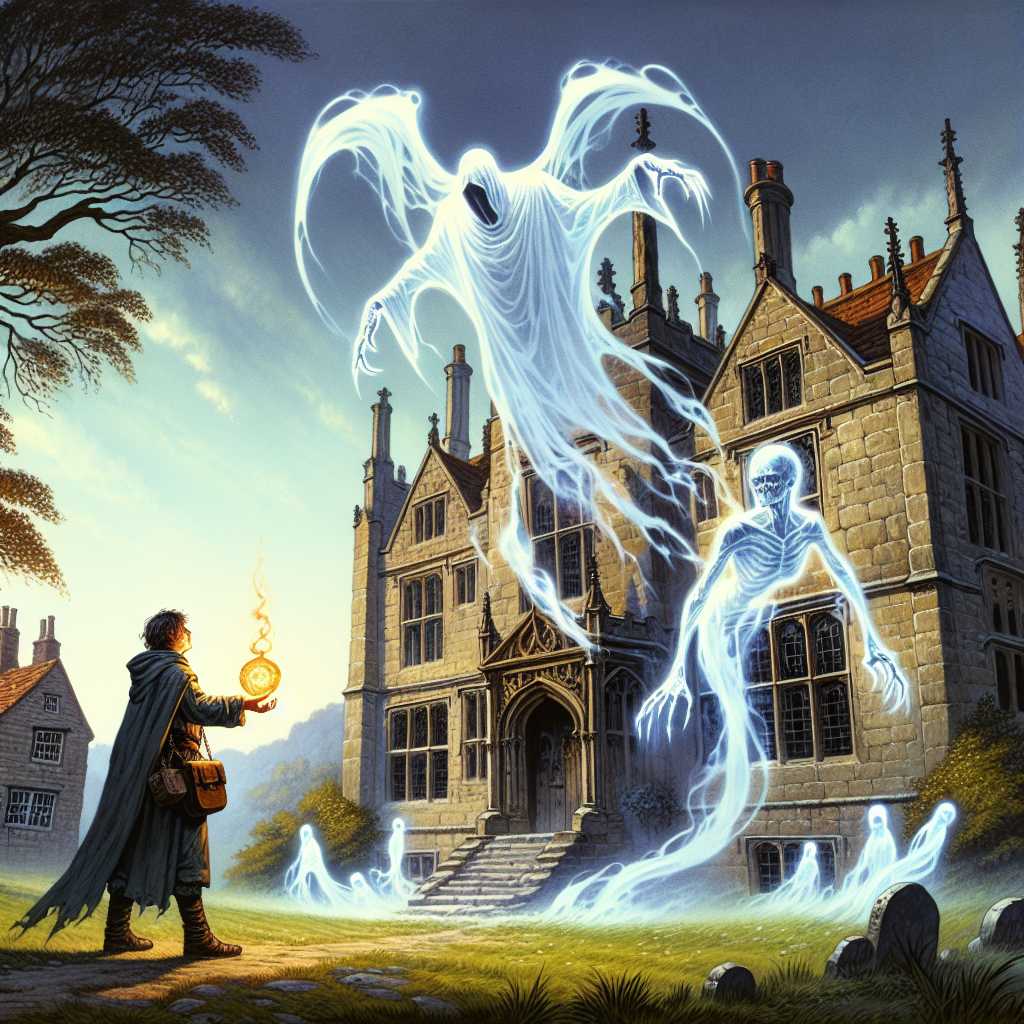
In the quaint, sleepy village of Yorkshire, there stood an old, ominous mansion atop a hill that loomed over the town. Every villager knew the eerie tale of the Hollow Hill Manor. They would occasionally whisper its story with a haunted hush, sharing it with newcomers or daring teenagers who sought a thrill. But for the villagers themselves, it was a chapter best left unopened.
**"The house is cursed,"** they would say, **"built on ground where shadows walk, there was once a family that dared to reside within its walls, never to be seen again."**
One foggy autumn evening, a stranger arrived in Yorkshire. His name was Edgar Vance, a writer seeking solitude and inspiration. Intrigued by the villagers' fearful tales, he found himself drawn, almost compulsively, to the house of which they were so afraid. Edgar was an enlightened man, not one to indulge in superstitions, and what could be more inspiring for his work than a night spent in the haunted manor?
Boldly, he made his way up the winding path to the house, its silhouette stark against the pale moonlight. The gate creaked loudly as he pushed it open, announcing his arrival to the desolate grounds. The air grew colder with each step, a chill that seemed to seep into his very bones.
As he reached the entrance, Edgar paused, hearing nothing but the whisper of the wind through the ancient trees surrounding the estate. **"Just a house,"** he thought, before pushing open the heavy oak door with a groan that echoed through the vast emptiness within.
The inside was as he expected it: dark, with furniture shrouded in layers of dust and cobwebs dancing in the corners like ghostly memories of the past. Edgar lit a candle, its flickering flame casting eerie shadows upon the walls.
He settled himself in the grand parlor, his pen poised above paper, ready to capture the mood. The silence was heavy, interrupted only by the occasional creak of the old house settling. Hours passed, and Edgar, consumed by his thoughts, forgot where he was, until a low hum began to fill the air—a faint, melodic tune.
"What could that be?" thought Edgar, rising to find the source.
He followed the sound, his curiosity leading him to a locked door at the end of the hallway. He hesitated, then shouldered the door open to reveal a small sitting room. At its center was an ancient wind-up gramophone, the needle dancing on a record, though no hand had turned it. The music was bittersweet, a lullaby of despair and longing.
**"This is impossible,"** Edgar murmured, yet there it was. The air seemed to pulse with a life of its own as shadows stretched across the room, curling with unnatural grace.
Suddenly, the music stopped, and silence descended once more. Heart pounding, Edgar tried to rationalize what he had witnessed. Perhaps the music had been left unfinished years ago, disturbed by the wind or a rat. Yet, as swiftly as he dismissed the thought, the temperature plummeted. His breath fogged in the air, turning a shivering chill that sat upon his shoulders like an unwelcome cloak.
Then he heard it—a muffled weeping, barely a whisper. It came from the walls themselves, where a false fireplace covered an alcove. Driven by some unseen urgency, Edgar removed the bricked-up facade with trembling hands, revealing a staircase spiraling down into darkness.
He descended slowly, each step creaking ominously beneath his weight. The passageway opened into a cold, stone cellar, where a trembling glow beckoned him around the corner. There, in the dim light of a dusty lantern, sat a woman clad in ghostly white, her face hidden beneath a cascade of dark, veiled hair.
**"Who are you?"**, Edgar asked, his voice shaky despite his efforts to sound brave.
The woman raised her head, revealing hollow eyes that spoke of centuries of pain. **"We are the forgotten,"** she answered simply, her voice like the rustle of leaves in a lonesome forest.
The shadows converged around her, forming the translucent figures of a family, each with eyes as empty and mournful as hers. Edgar backed away, every instinct screaming at him to flee, yet his feet refused to move.
**"Free us,"** they pleaded in unison, voices echoing like a chant. The room spun around Edgar, the very walls feeling as if they bent to the will of the spirits trapped within them.
In a moment of clarity—and perhaps madness—Edgar realized what he must do. He dashed back up the stairs and tore through the house until he found the library. There, on an old wooden pedestal, lay the manor’s deed, written in the hand of its long-dead master.
Seizing the deed, he knew the house depended on its possession—his ownership was binding the spirits to their eternal prison. With determined resolve, he struck a match and set it alight. The paper curled and blackened, the flames licking the last connection between the manor and the souls trapped within.
A cry, half anguish, half relief, echoed through Hollow Hill as the curse was shattered. The air lightened, and through the velvet gloom, Edgar heard only the peaceful rustle of leaves outside as dawn approached.
When the villagers found Edgar the next morning, they saw a transformed man. The once dark and ominous edifice of Hollow Hill Manor stood empty and silent, its ghosts finally at rest, its curse broken by a stranger's act of courage—a tale to be told for generations to come.
And thus, the shadows departed from Yorkshire, leaving behind only the whisper of their story, carried eternally on the chilling breeze.



